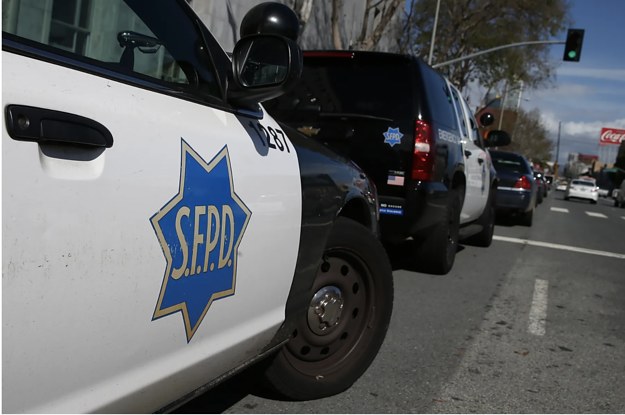“Effectively all law enforcement section traffic will be encrypted,” Adam Lobsinger, an SFPD spokesperson, instructed Cayuga Media on Thursday. “Almost no police radio visitors will be listened to, and what is still left unencrypted is going to be on the Department of Crisis Administration aspect.”
The city’s Office of Crisis Management (DEM), which routes 911 calls to law enforcement or fireplace units, is also developing a protocol for encrypting selected radio transmissions, nevertheless some DEM dispatches may perhaps continue being unencrypted. Communications in between SFPD and DEM could beforehand be heard on scanners now, the community is no longer privy to the law enforcement side of people exchanges. The DEM has not still responded to a ask for for remark.
SFPD’s use of common encryption has barred hobbyists like Crisis — as properly as journalists and audio platforms that broadcast law enforcement streams — from checking even conventional law enforcement functions. It is component of a expanding craze among US law enforcement that problems authorities transparency advocates about the effects of a a lot less seen police drive. Police in Illinois, Minnesota, Virginia, and other states have just lately encrypted their radio communications to some degree. Privateness regulation experts say that blanket encryption is an severe reaction to perceived threats, and that police radio targeted traffic is a necessary general public useful resource.
“These radio transmissions are an critical window the general public has into what police do,” David Snyder, govt director of the Initial Modification Coalition, advised Cayuga Media.
SFPD earlier framed the coming encryption of its radio feeds as a partial evaluate, and not the helpful blocking of all radio targeted visitors. In Could, Sgt. Michael Andraychak told Palo Alto’s Daily Submit that the select encryption of PII would be “sort of putting a balance.”
The company mentioned in a June media advisory that it is “committed to transparency as the legislation makes it possible for and will be fulfilling the public’s fascination by not encrypting all of [its] channels.” To limit the transmission of PII, the company would encrypt portions of radio website traffic containing sensitive details, which includes discussions of sexual assault and domestic violence.
Scanner hobbyists on radio boards and subreddits first seen the modify, with a lot of stressing about its likely to undermine law enforcement transparency at a time when distrust in the police is managing high. They have been tracking the department’s shift from an analog radio system to a digital a single in November. SFPD changed its 20-year-aged technique with a newer version that supplies wider coverage and clearer audio and conforms to interoperability specifications.




